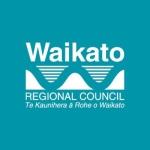Variation 5 charges overstated
Some media coverage of indicative consent-related charges for Taupo farmers has incorrectly stated that farmers could face annual charges of up to $6000 for monitoring of rules designed to protect Lake Taupo from nutrient leaching.
Last week Environment Waikato announced details of the indicative charges farmers will face for new consents in the Lake Taupo catchment.
Under the council’s yet to be finalised Variation 5 to the Waikato Regional Plan, farming in the catchment is due to become a consented activity from next year as part of moves to protect water quality in Lake Taupo from the effects of nitrogen leaching.
As part of Variation 5’s implementation, the Government and ratepayer-funded Lake Taupo Protection Trust is paying the $5000 average cost per farm to determine their Nitrogen Discharge Allowance (NDA) benchmark, a measure of the amount of nutrient they can leach in future. This is a one-off cost and is not met by the farmer, and farmers will have the ability to sell some of their NDA.
However, EW is advising that farmers can expect to pay between $1000 and $3000 to gain resource consent under the scheme, which equates to about a sixth to nearly a half of the total cost of gaining resource consent (including benchmarking) to continue farming in the Taupo catchment. This is a one-off cost to be met by the farmer. It is not an annual charge. Some media appear to have incorrectly included this figure in what farmers could be expected to pay annually.
There will, however, be consent monitoring charges ranging from $500 to $2500 per consented farming operation, charged annually, to cover EW staff site visits and consent audits. Also, there will be an annual consent charge of $351. Annual consent charges help pay for the on-going administration of consents and monitoring of the cumulative environmental effects of all consented activities.
Therefore, ongoing annual costs would be around $2,800 at most, not up to $6,000 as some media suggested.
Fees for gaining consents, consent monitoring fees and annual consent charges are already standard for most consents in the region, although actual consent processing, monitoring and annual charge fees vary depending on the nature and complexity of the activity. Generally, consents involving more complex issues, and with a greater potential for significant environmental effect, incur higher charges. The annual charge for farmers in the Taupo catchment are towards the lower end of consent charges in the region.
The exact level of charges for each Taupo farm – apart from the $351 annual consent charge – will vary, depending on factors like farm size and the complexity of assessing compliance with consent conditions for individual properties.
Taupo implementation manager Natasha Hayward said the compliance monitoring charges were necessary to help meet the costs of monitoring, which is essential to ensure farmers are operating as per their resource consent and to protect public funds.
“Under Variation 5, farmers may be able to alter their farming operation and sell part of their Nitrogen Discharge Allowance to the Lake Taupo Protection Trust, who would pay for it using a special fund established by the Government, Environment Waikato and Taupo District Council.
‘If proper monitoring of farms via consents wasn’t in place, we would not be in a position to see if farmers were sticking to their commitment to reduce the amount of nitrogen coming from their land into the lake.”
Ms Hayward stressed a final decision on implementing Variation 5 is still awaited from the Environment Court. That decision is expected early next year.
